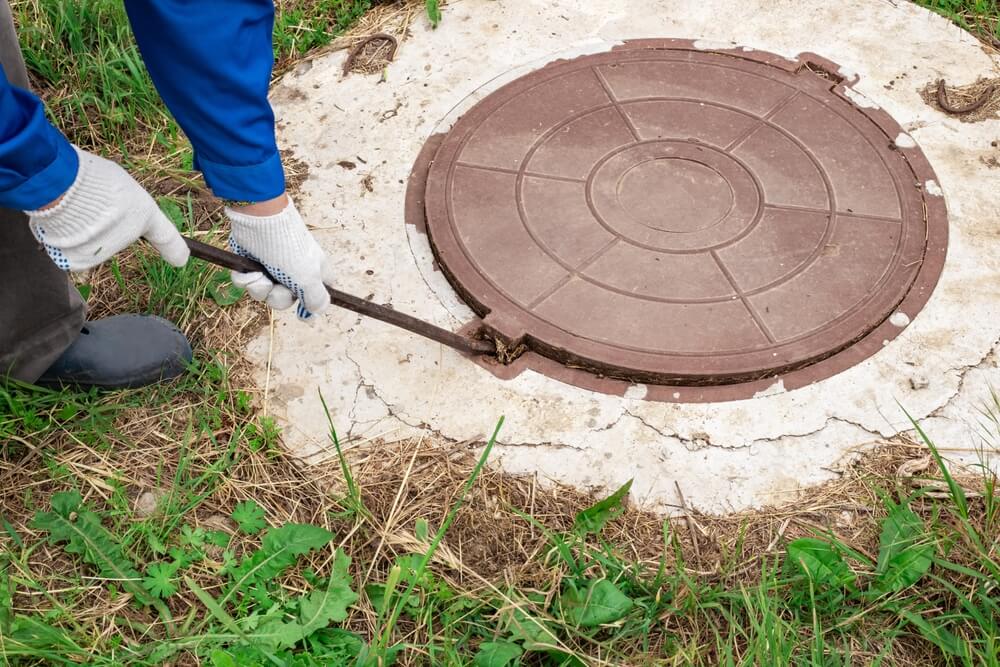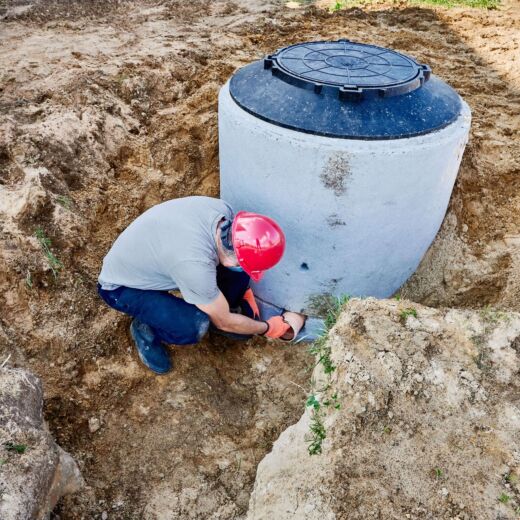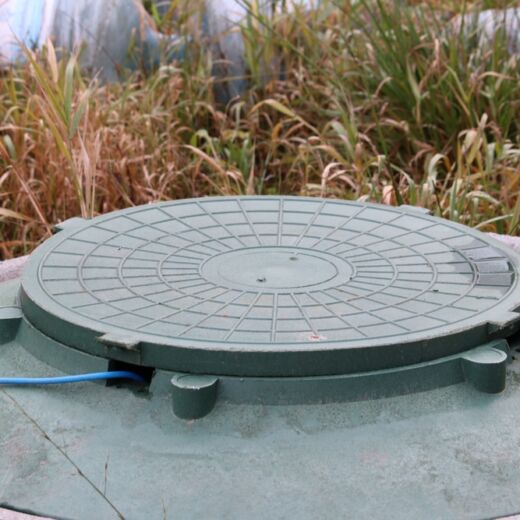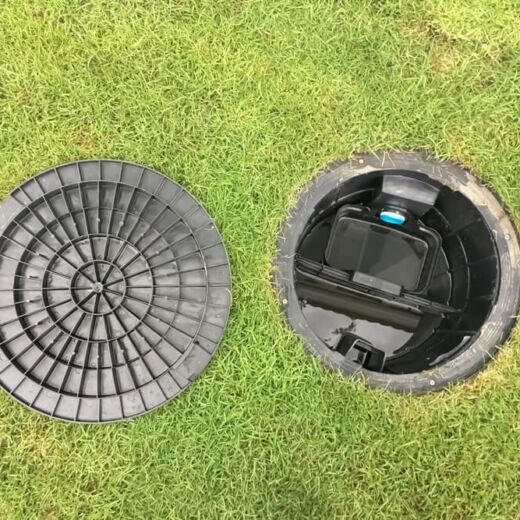Part of being a homeowner in a rural community in Alberta means being a part-time handyman. You learn quickly what tasks you can take on and which need a professional touch. When it comes to your septic system, most people don’t have a lot of experience with it, which is why professional septic inspections are so important.
This guide will take you through the process of maintaining your septic system. We’ll explore both DIY methods and when it’s time to call in professional septic companies. You’ll learn practical tips, gain expert insights, and discover how to keep it running smoothly.
Simple Septic Tank Inspections Homeowners Can Do
Maintaining your septic system doesn’t have to be daunting. Here’s a simple guide to get you started:
DIY Septic Maintenance Tasks
Locate Your Septic Tank
You can usually find it a few feet away from your home, some may be farther away. Knowing where your septic tank is can be an important detail if access is ever needed when there is snow cover. Periodically opening the tank lid and looking around for cracks or wear and tear that may need repair can find issues before they become severe and expensive. When locating your tank, avoid using devices like a soil probe to find the edges of your tank (the usage of such devices can penetrate the septic tank). Knowing the difference between your septic tank and your cistern is an important detail to know.
Measure the Depth
Using a long tape measure, check the depth of the scum and sludge in your tank. If it’s more than one-third of the tank’s total depth, it’s time for a pump-out.
Check for Leaks
Inspecting the area around your tank and walking your drain field are small steps that can locate problems before they become irreversible. Looking for soggy/spongy ground or pooling water, both around the tank or out in the field. These are signs of a leak that needs immediate attention from a qualified professional.
Maintenance Tips
- Use septic-safe products: Avoid harsh chemicals that can kill beneficial bacteria in your system.
- Limit water usage: Spread out laundry and dishwashing to prevent overwhelming the system. Space out the usage, rather than having a laundry day, spread it out over the week. Putting in a load of laundry before going to bed or before going to work can take a lot of stress off of your system by utilizing times that don’t usually have water usage.
- Proper disposal: Only flush biodegradable items. Avoid flushing wipes, diapers, and sanitary products.
- Water Softeners: The ideal disposal spot for the backwash from a softener system is a dry-well, but if that is not an option, switching to potassium-based salts can save your field by preventing sodium build-ups from blocking areas of your field.
The Professional Approach
A thorough septic system inspection evaluates your system’s overall health and condition, covering more than just the tank. Key areas include:
- Assessing the tank’s condition and size
- Evaluating the drain field area
- Checking landscaping or grading impacts
- Ensuring the system size matches home occupancy
- Inspecting mechanical and plumbing equipment and alarms and testing their performance
Inspectors examine the entire system, considering current and future usage, and recommend necessary repairs or maintenance. Routine inspections help catch potential issues early, preventing costly repairs. Septic Medic offers comprehensive on-site assessments, detailed inspections, and reports for residential septic systems.
Professional Septic Inspection Benefits
Professional septic inspections offer several benefits. A thorough assessment by certified technicians ensures that any hidden issues a DIY inspection might miss are identified. These professionals provide expert solutions and tailored maintenance tips, giving you peace of mind that your system is functioning correctly.
During an inspection, certified technicians check the system, including the septic tank, drain field, and discharge. They test pumps, filters, floats, and alarms. Comprehensive testing and detailed written reports cover all aspects of the system, examining absorption areas, liquid levels, and water flow. This thorough analysis helps catch problems early, preventing costly repairs and providing recommendations without obligation.
Weighing Your Options
DIY Septic Inspections
Pros:
- Saves money on inspection fees.
- Helps you understand your system better.
- Allows you to address minor issues quickly.
- Early detection of potential issues.
Cons:
- Unfamiliarity with the septic system could be frustrating.
- Risk of missing subtle signs of problems.
- Requires regular monitoring and effort.
Professional Septic Inspections
Pros:
- Detailed inspection with advanced tools and expertise.
- Early detection of potential issues.
- Ensures proper functioning and extends the system’s lifespan.
- Become more educated about your system.
Cons:
- Professional services come with a cost, typically between $249 to $699.
- May need to wait for an appointment.
When to Call a Professional
Scheduling an annual septic system inspection is crucial for preventing major issues and ensuring the system’s longevity. Insurance policies in some provinces often require regular professional inspections, which help identify problems before they escalate. For older systems, frequent checks are essential to maintain functionality.
A professional septic inspection is vital during real estate transactions. Whether buying or selling a home, knowing the system’s condition can save potential buyers from unexpected expenses and help sellers set a fair price. Professional inspections provide a comprehensive evaluation that home inspectors typically cannot offer, ensuring peace of mind for both parties.
If DIY methods fail to resolve recurring problems, it’s time for professional assistance. Their expertise can diagnose and address underlying issues that may go unnoticed by untrained eyes, thereby preventing costly repairs and extending the system’s lifespan.
Professional Septic Inspections from Septic Medic
Regular septic system inspections, whether DIY or professional, are required to maintain a healthy and efficient septic system. While DIY inspections can save money and provide immediate action, professional inspections offer a thorough assessment and peace of mind. By balancing both approaches, you can ensure your septic system remains in top shape, avoiding those unexpected and unpleasant surprises.
Keep your septic system in top condition with professional inspections from Septic Medic. Regular assessments can prevent expensive problems, extend the lifespan of your system, and ensure compliance with current standards. Our certified technicians provide thorough evaluations and detailed reports, offering accurate recommendations for repairs and maintenance. Whether you’re facing ongoing issues, buying or selling a home, or simply maintaining your system, trust Septic Medic to provide an industry-leading professional septic inspection for your peace of mind.




